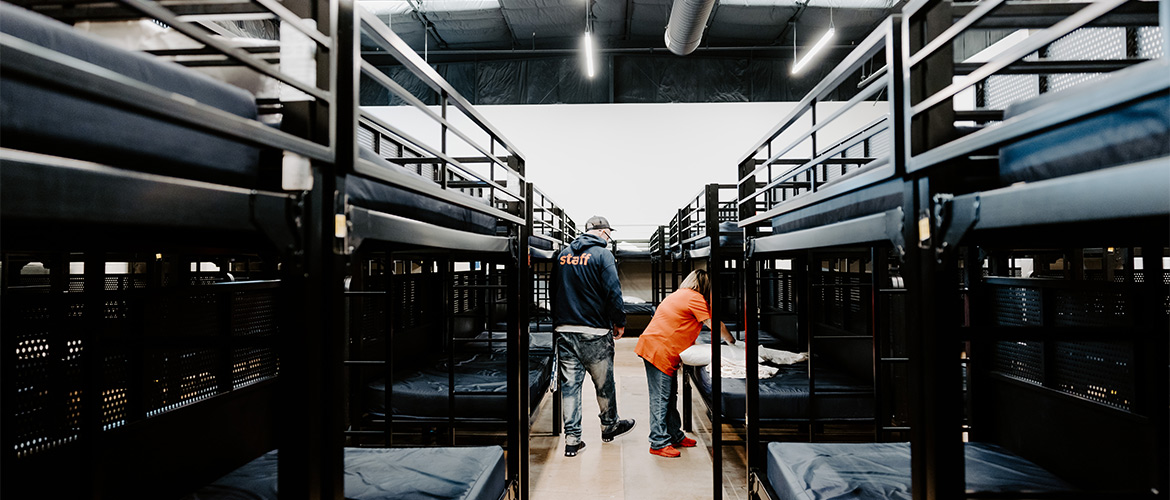As Oklahoma City’s chronically homeless population continues to climb, Blue Cross and Blue Shield of Oklahoma (BCBSOK) is ramping up efforts to help this vulnerable group secure shelter and health care.
Since 2017, Oklahoma’s homeless population has declined overall. But in the state’s largest city, Oklahoma City, the chronically homeless population is rising, making up 61% of the unsheltered, according to a recent point-in-time count.
These individuals, who have been homeless for at least a year and struggle with a disabling condition, more frequently visit local hospitals and emergency departments.
To help get people off the streets, BCBSOK recently awarded City Care Oklahoma City with a $60,000 Blue ImpactSM grant to invest in the nonprofit’s medical respite work. The funds will help pay to train managers and housing navigators, buy bandages and other medical supplies and equipment as City Care works to build a new respite center it plans to open in 2025.
Shawn Loyd, City Care’s director of homeless services, says the financial assistance is coming as health care providers and social service organizations are beginning to tackle the problem.
“For the first time that I know of in Oklahoma City, everyone’s coming to the table to work on an answer,” he says. “That's inspiring and the only way we're really going to change this system. Hopefully with this grant we can create real change.”
City Care OKC’s night shelter is open seven days a week, 365 days a year from 6 p.m. to 7 a.m. Each night, guests fill the shelter’s 140 beds. In August, they provided 4,278 beds for 327 individuals and typically serve about 2,000 unique people each year.
It’s the city’s only permanent low-barrier shelter, meaning participants aren’t required to commit to rehabilitation programs and may stay for as many nights as needed.
“We offer people a chance to get back on their feet when they’re at rock bottom,” says Staci Sanger, City Care’s chief development officer. “Once basic needs like shelter and food are met, we see that people have the stability to heal.”
Each person who enters the shelter meets with an intake coordinator to complete a needs assessment. The goal is to take steps toward securing housing, employment, and medical and behavioral health needs.
Many night shelter guests are recently discharged from the hospital and need continuous care for bed sores, mobility issues, open wounds and other problems, Sanger says.
Between May and September, about 28% of respite patients who completed an intake survey had been hospitalized at least once in the previous 30 days.
Many have severe medical needs, such as recent amputees trying to adapt to their new situation or people with advanced cancer who need home care or hospice, Loyd says.
Night shelter staff aren’t professionally trained to treat these patients.
In the two years since opening, over 1,100 calls have been made to Oklahoma’s Emergency Medical Services Authority, underscoring the consistent need for help beyond City Care’s abilities.
Brooke Townsend, BCBSOK’s director of community affairs, says the grant will help ensure Oklahoma City’s most vulnerable are cared for until City Care can open its medical respite shelter in 2025.
“This is the right thing for us to do to make sure people have basic care and can get back to stable housing and address their long-term health needs,” Townsend says. “Our long-term goal is to walk alongside City Care and to continue to be a partner with them as they get their respite operation up and running.”

